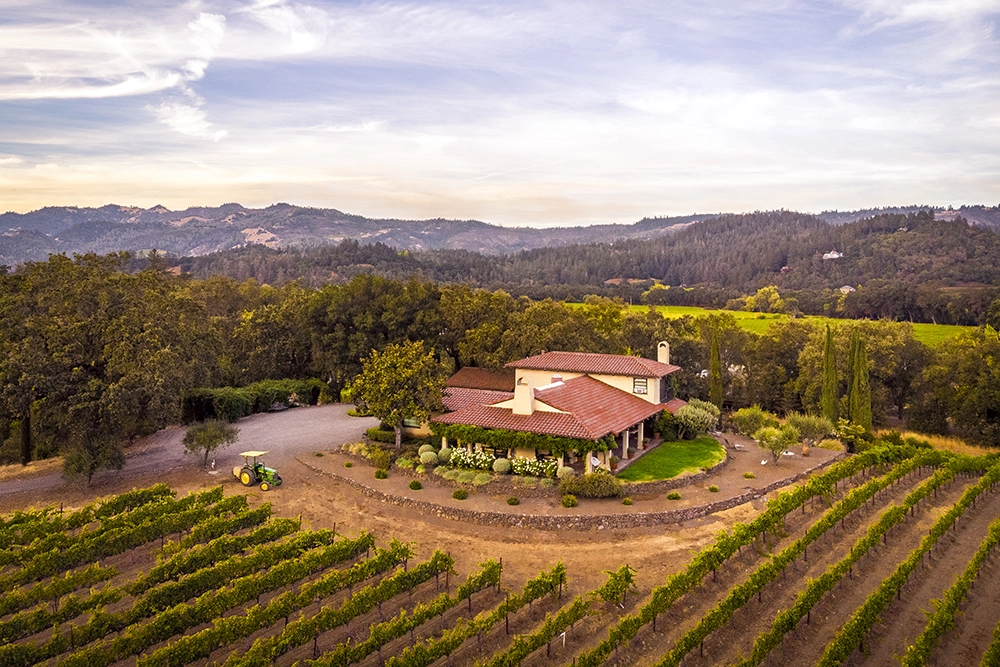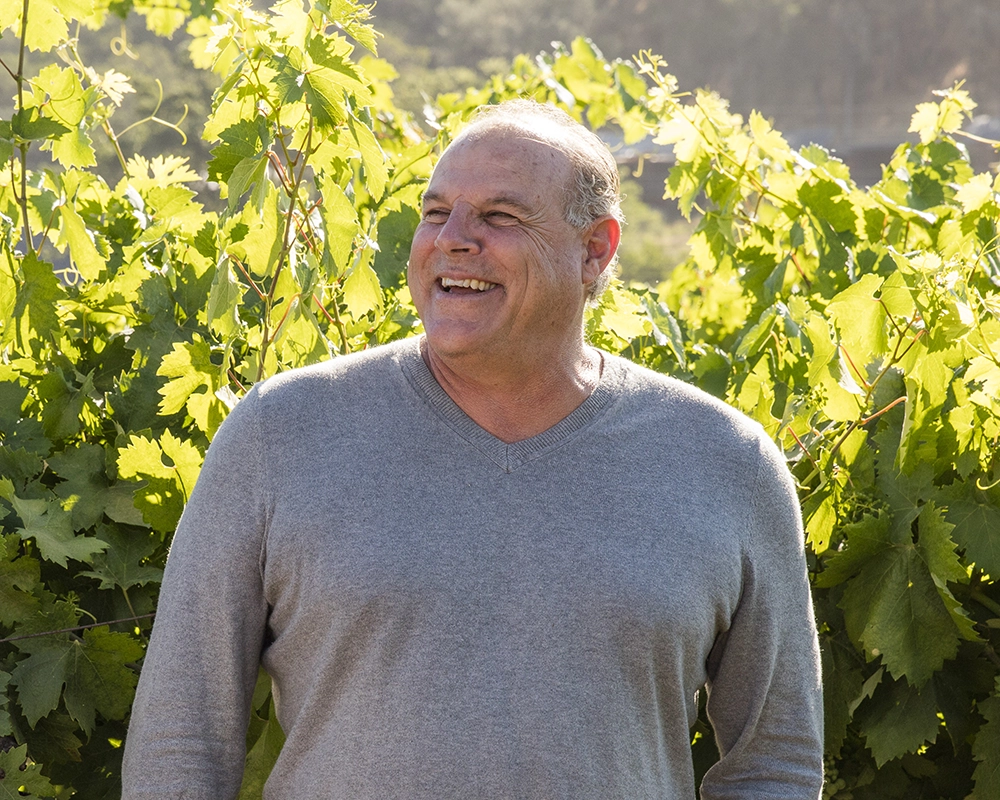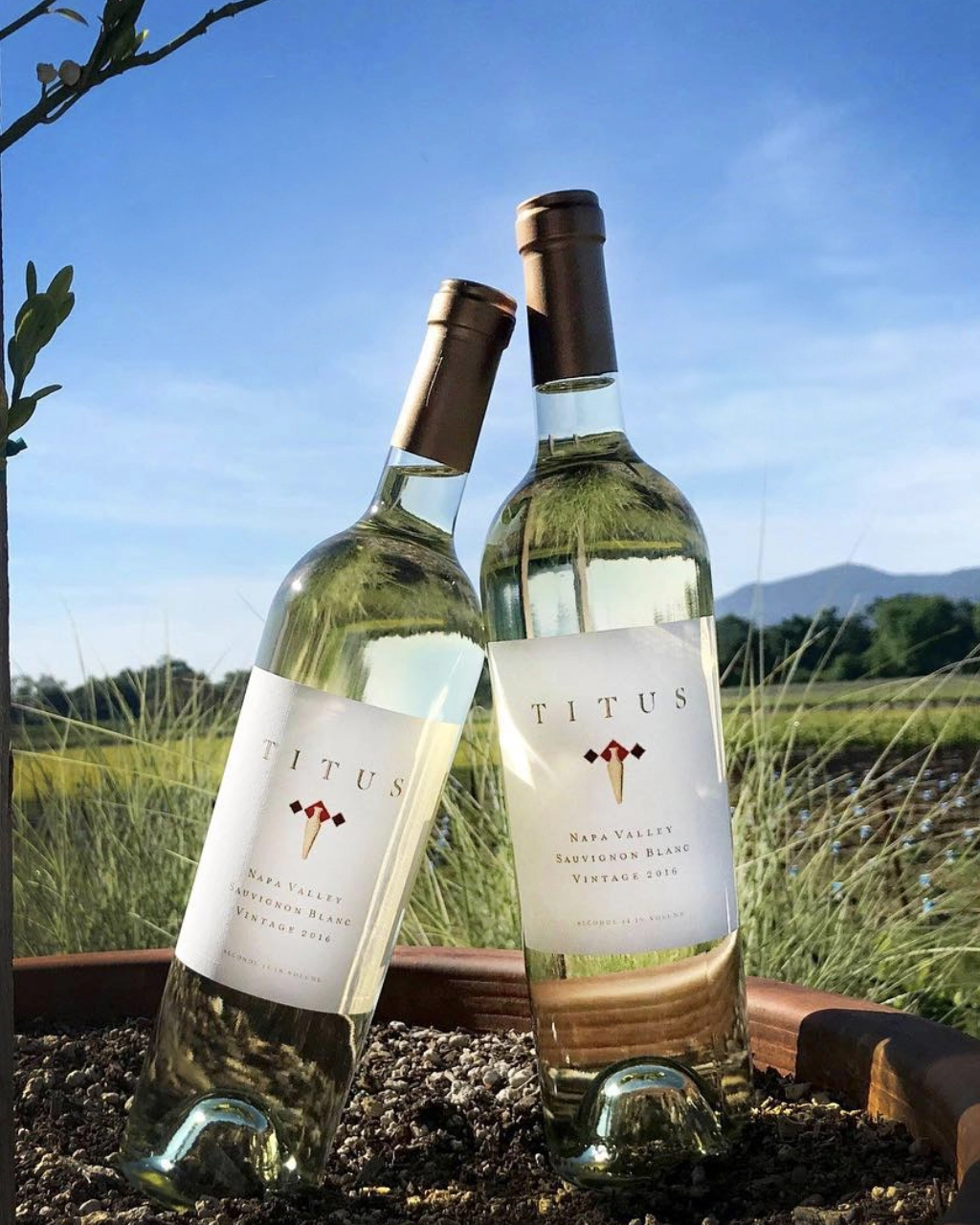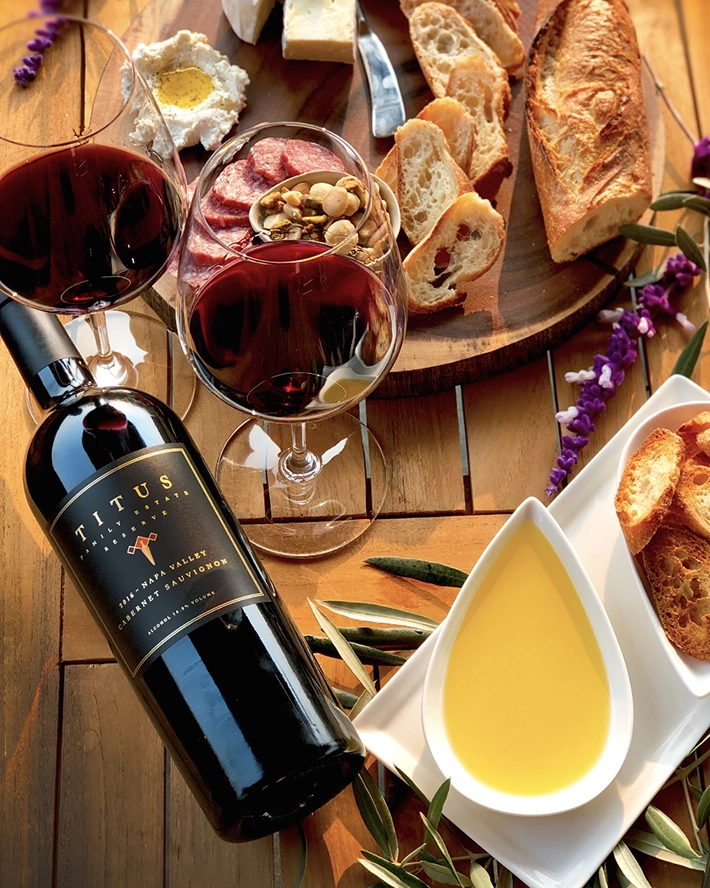In partnership with Serendipity, the following wines are available in both Texas & California markets.
Titus Vineyards, a family-owned 50-acre estate nestled in the heart of the St. Helena AVA in Napa Valley, boasts a rich legacy that spans over 150 years. This historic vineyard has produced some of the Valley’s finest wines, including those for renowned labels like Beaulieu Vineyards, Cuvaison, and Charles Krug. Since the Titus family’s first harvest in 1969, their commitment to winemaking and land stewardship has flourished, resulting in the distinctive, well-balanced wines that define Titus Vineyards today.
Now in it’s second generation, brothers Eric and Phillip are at the helm. We recently took the opportunity to connect with Eric, currently both the General Manager and Vineyard Operations Manager, to talk all things Titus Vineyards. Come along with us as we take an inside look at Napa through the lens of a grower family turned top-tier producer.
Q: What sort of impact has your family business (as growers and then winemakers) had on the fabric of Napa Valley?
A: I think we are representative of a wave of arrivals that came to Napa Valley in the late 1960’s through the mid 1970’s. Those arrivals came at a time when Napa was largely considered a regional wine producer with wines that were mostly consumed locally. Many different varietals were planted, but there was no real specificity and little recognition of where the optimal location for growing premium varietals was.
That began to change with better understanding of the diversity of the growing regions within Napa, as well as market recognition and increasing demand for Napa Valley wines. Many of the vineyards farming Zinfandel, Petite Sirah, Gamay, Carignane, Chenin Blanc, Riesling and a host of other lesser-known varietals removed some or all of that acreage in favor of Chardonnay and Cabernet along with other Bordeaux varietals. The Titus family business evolved along with that trend, first with grape growing and then winemaking as well.
Q: Before Titus came to be what it is today, your parents sold fruit to Charles Krug, Beaulieu Vineyards, Cuvaison, Quail Ridge, and Pine Ridge. Do you still have relationships with these other historic wineries?
A: The primary relationships we had were with Charles Krug and Beaulieu Vineyards; however, we have not maintained any lasting ties with them. I would say they did influence some of our approach to establishing the winemaking side of our business. Charles Krug was a well-established, historical and family-owned winery that made estate grown wines at very approachable prices, and maintained some of the more traditional varietal bottlings. Beaulieu had a winemaking team that was more contemporary for the time, with a focus on their Cabernet programs, which is where we fit in. Through growing and selling our fruit to them, which was highly regarded, we gained the understanding that our vineyards could and would supply high quality Cabernet for us to establish our own label.
Q: In 2024, is it rare to find other family-owned, multi-generational wine brands in Napa? What are some of the benefits of being a family-owned brand in one of the world’s most elite wine regions?
A: When we first started out in the 1990s, it was pretty much a given that most producers were in that category. Many of those small producers have grown larger or sold as the wine industry has evolved. Many of the producers who grew to a sustainable level and had market success were acquired by other entities to grow their brand even larger, a trend that is currently ongoing.
Maintaining our current family-owned structure and status has become a more relevant selling point as the current customer has put higher value on authenticity as well as consistent, estate-based wines. The benefit of family ownership is simply the control we maintain at every level of decision making— this is reflected in how we project and identify ourselves as a brand and, most importantly, in the consistent high quality in the wines. Most consumers recognize that, and I think many consumers who seek out wines from Napa see themselves as vicariously living the farmer-vintner lifestyle, so the small family-run operations are the ones they can relate to.
Q: What would you say has changed the most about Titus since your first commercial release in 1990?
A: Our first few vintages in the ‘90s were more exploring how we would be received in the market – and whether we saw this as a lasting family business. Once we decided to move ahead with long term plans to establish Titus, we focused more on sustainable quality and style in both grape growing and winemaking.
This process started in the late 90’s with an aggressive redevelopment of our estate vineyards in which we replaced older Cabernet blocks with more modern (for the time) rootstocks and Cabernet clones. We replaced Chardonnay vineyards with other Bordeaux varietals that were more valuable to our own vision of winemaking.
From all this effort, our wines evolved into a more balanced and blended style of Cabernet that brings together the traditional and complementary Bordeaux varietals. Along the way we also fleshed out our portfolio to include varietal programs for Cabernet Franc, Malbec, Merlot, Petite Verdot, Petite Sirah and a couple of other cool and contemporary bottlings.
Q: Do you have a favorite Titus wine?
A: There are aspects of each of our wines that makes it a “favorite,” otherwise we probably wouldn’t keep making it. However, as the vineyard manager, my bias is based on what I see of the grapes from out in the field, both within a growing season and over the life of the vineyard.
I love how our Napa Zinfandel tastes so much like the fruit in the field as it ripens and the flavors develop, with the integration of licorice, fruit, pepper and other great flavors. I like the Cabernet Franc; we’ve been making it since the 1996 vintage and have seen it evolve in style and popularity within the market, both our own and industry-wide. Our Reserve Cabernet is such a rich expression of a Napa Cabernet Sauvignon, bringing together all the best aspects of modern grape-growing and winemaking. Finally, the Sauvignon Blanc is our household favorite that fits all seasons as it pairs with so many of the local foods, from cheeses to seafood.
Q: Titus ‘Andronicus’ is one of our go-to’s for value in a premium Bordeaux-inspired blend. What inspired the name of this bottle? Do you have any favorite or unexpected food pairings with this wine?
A: We wanted something that was reminiscent of Titus, our family name, and Andronicus is a classic, Roman-inspired name that we thought of when we first made our Bordeaux style red blend in 2006. A search of “Andronicus” showed several historical figures of prominence in Roman history with that name. It’s a strong name, the Latin roots of which mean “victorious (nike) warrior (Andro)”. There is also a word association between Titus and Andronicus from the little-known Shakespearean play ‘Titus Andronicus’. We reflect the Roman history of the name in the Roman font and block-like arrangement of Andronicus on the label.
An unexpected food pairing for Andronicus is a dish that carries a lot of spice, even heated spice. I recently had it with a grilled octopus dish that was accompanied by a piquillo pepper puree, chorizo and black olive. The rich fruit-forwardness and soft but broad and full-tannin profile paired excellently with the spiciness and richness of that combination of flavors.
Q: We were so excited about the addition of Titus’ single-vineyard Zinfandel in 2021 (we’re currently showing the second release of this wine from the 2022 vintage). Can you tell us more about the Bald Mountain Vineyard?
A: The Bald Mountain Vineyard is in the western hills above Oakville, just over the Napa-Sonoma county line. I like to say it is Sonoma ‘in name only’ since it literally borders Napa county and has all the growing condition attributes of a classic old Napa Valley Zinfandel vineyard.
Our relationship with the Bald Mountain Vineyard goes back a solid 15 years, but it is an older vineyard that was planted back in the early ‘80s. It is essentially “dry-farmed” in order to see the crop yield fluctuate from year to year based on weather conditions. A generally lower-yielding vineyard, it expresses concentration and focused flavors that are classic Napa Zinfandel, with well-integrated fruit, spice, pepper and cola notes.
Q: We often hear Titus Vineyards Estate Cabernet described as showing the true character of St. Helena fruit– what are some of the characteristics that define this AVA?
A: We do consider the Estate Cabernet Reserve (black label) to be our flagship wine, as it reflects the distinct terroir of one of our two vineyards sites, while our ‘Napa Valley’ Cabernet (white label) is our standard bearer. I believe both wines express the sense of place defined by the St. Helena AVA.
I think of St Helena, which is all upper valley floor vineyards, and its wines are defined by their rich, broadly-structured and fruit-forward nature, derived from the higher-degree day growing conditions coupled with deeper gravelly or rocky soil profiles. The upper valley tends to have a little more rainfall and good water-holding capacity, so the vines fare well during the warm extended growing season. The balance of the wines are, even in their youth, one of the first noted attributes by those new to the wines from the St Helena AVA.
Q: For younger wine drinkers that may be in their discovery period as far as what they like, what would you say are the benefits of embracing wines from Napa?
A: There are many different outstanding winegrowing regions in California and the West in general, and Napa has perhaps more of a storied history than most. However, at the same time it has a perception of high-quality, but unattainably high-priced wines. I would say that there is a ‘silent majority’ of wine producers in Napa that make very high-quality wines that showcase what makes our region exceptional, but are also approachable in their price points.
There is also a perception that Napa is overly focused on Cabernet Sauvignon, but a little research and exploring will reveal that the growing conditions so suited for Cabernet are equally suitable for exceptional quality in other varietals. I think most wineries have a few of these in their portfolios, and they are worth trying to better understand the diversity of the region.
With a deep history and a knack for creating top-notch, well-balanced wines, this family-owned estate truly embodies Napa Valley’s spirit. Whether you’re a seasoned wine enthusiast or just starting to explore Napa, Titus Vineyards is ready to welcome any and all with flavors and a legacy that stand out in every sip. The only question that remains is which will you try first?






